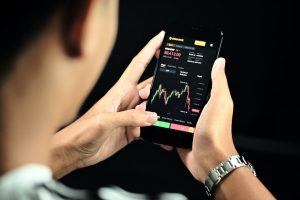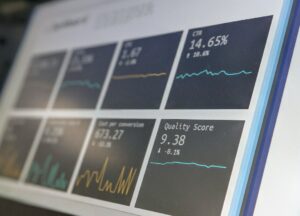Becoming an Expert Forex Trader: Tips and Strategies
Forex trading, also known as foreign exchange trading, has gained immense popularity in recent years. The decentralized nature of the forex market, along with its high liquidity and potential for profit, has attracted thousands of individuals looking to become expert forex traders. However, mastering forex trading is not an easy task. It requires knowledge, skill, and a disciplined approach. In this article, we will discuss some essential tips and strategies that can help you become an expert forex trader.
1. Educate Yourself: The first and most crucial step in becoming an expert forex trader is to educate yourself about the forex market. Learn about the basics of forex trading, including currency pairs, leverage, and margin. Familiarize yourself with different trading strategies, technical analysis tools, and fundamental analysis. There are numerous educational resources available, including online courses, books, and webinars. Take advantage of these resources to gain a solid understanding of forex trading.
2. Develop a Trading Plan: A trading plan is a roadmap that outlines your trading goals, risk tolerance, and trading strategies. It is essential to have a clear plan in place before you start trading. Your trading plan should include details about the currency pairs you will trade, the timeframes you will use, and the risk management techniques you will employ. Stick to your trading plan and avoid making impulsive decisions based on emotions.
3. Start with a Demo Account: Once you have acquired the necessary knowledge, it’s time to put your skills to the test. Open a demo trading account with a reputable forex broker. A demo account allows you to trade with virtual money, simulating real market conditions. Use this opportunity to practice different strategies, test your trading plan, and gain experience without risking real money. It is essential to spend sufficient time trading on a demo account before moving on to live trading.
4. Master Risk Management: Risk management is a critical aspect of forex trading. It involves assessing and managing the potential risks associated with your trades. One of the most common risk management techniques is setting a stop-loss order. A stop-loss order is an instruction to close a trade if it reaches a certain price level, limiting your potential losses. Additionally, it is crucial to determine the appropriate position size for each trade based on your risk tolerance and account balance.
5. Implement a Trading Strategy: A trading strategy is a set of rules and guidelines that determine when and how you will enter and exit trades. There are numerous trading strategies available, including trend trading, range trading, and breakout trading. Choose a strategy that aligns with your trading style and risk tolerance. Backtest your chosen strategy using historical data to assess its effectiveness before using it in live trading.
6. Utilize Technical and Fundamental Analysis: Technical analysis involves studying historical price data and using various indicators and chart patterns to predict future price movements. Fundamental analysis, on the other hand, involves analyzing economic factors, such as interest rates, GDP growth, and geopolitical events, to predict currency trends. Both types of analysis can be powerful tools in forex trading. Combining technical and fundamental analysis can provide a more comprehensive view of the market.
7. Keep a Trading Journal: Keeping a trading journal is an often overlooked but essential aspect of becoming an expert forex trader. A trading journal helps you track your trades, record your thoughts and emotions during trades, and identify patterns and trends in your trading performance. It can provide valuable insights into your strengths and weaknesses as a trader and help you make necessary adjustments to improve your trading strategy.
In conclusion, becoming an expert forex trader requires dedication, continuous learning, and practice. Educate yourself about the forex market, develop a trading plan, and start with a demo account. Master risk management techniques and implement a trading strategy that suits your style. Utilize technical and fundamental analysis, and keep a trading journal to track your progress. With time and experience, you can become a successful and expert forex trader.





